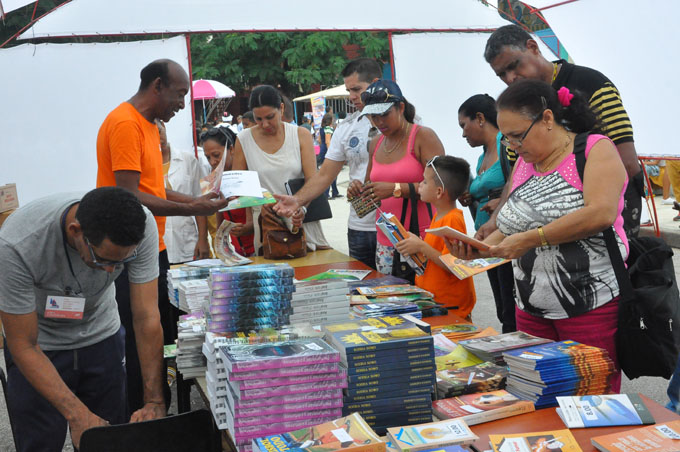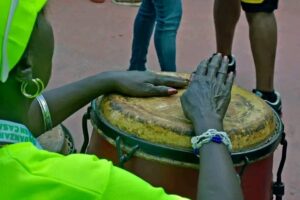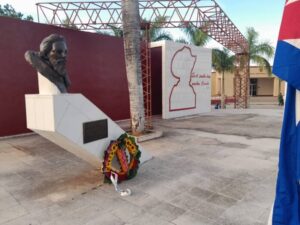The 33rd Havana International Book Fair (FILH) will be held from 13 to 23 February next, with the printing and marketing of the first batch of texts from the People’s Library, which includes classics of Cuban and foreign literature.
This was announced today at a press conference by Juan Rodríguez Cabrera, president of the Cuban Book Institute and of the FILH Organising Committee, who said that this initiative reflects the state’s desire to encourage reading among the public throughout the country, despite the difficulties.
Cuba remains committed to continuing to deliver the best of its culture to the people and an event such as the International Book Fair reaffirms this, as for the 33rd edition more than 1,300 new publications will be presented in physical and digital format, he said.
According to Rodríguez Cabrera, this year’s event is expected to surpass the sales figures of the previous edition, where 1,300,000 copies of books were sold at an average price of 23 pesos in national currency.
The FILH, commented the president of the Organising Committee, in addition to the literary presentations, will be accompanied by a solid cultural programme in which other art forms such as music, cinema and stage performances will be interwoven.
More than 40 countries and around 400 foreign guests are expected to attend, mostly from Latin America, the Caribbean, Europe and Africa, especially as the Fair is dedicated to the Republic of South Africa, he noted.
As usual, the FILH becomes a constant homage to the Commander in Chief Fidel Castro Ruz, its architect, and celebrates the 25th anniversary of the Territorial Editions System and commemorates the 130th anniversary of José Martí’s fall in combat.
In addition to its headquarters in the Morro Cabaña Historic-Military Park, the event will have 18 other sub-sites distributed throughout the capital and will also reach work and student centres, neighbourhoods in transformation and libraries, because it is an event in permanent contact with the people, Rodríguez Cabrera explained.
It is a great honour to have South Africa as a guest country, because of the ties of friendship that exist between that sister nation and Cuba, forged since the struggle against apartheid and by Fidel and Nelson Mandela, he said.
The year 2024 marked 30 years of relations between the largest of the Antilles and the African country, while this year 2025 marks three decades since the opening of the South African diplomatic headquarters on the island, noted Yvonne Nkwenkwezi Phosa, South African ambassador in this capital.
Showcasing our identity through literature and other arts is significant for future generations, as it has enabled progress in fields such as education, she said.
The ambassador said the South African delegation will be led by Bertha Peace Mabe, Deputy Minister of Sport, Arts and Culture, who will lead 15 renowned South African authors to share their works with readers during the fair.
Josué Pérez Rodríguez, coordinator of the Professional Programme of the FILH, pointed out that the event will feature a wide-ranging schedule of presentations in the main halls of La Cabaña, where the most important awards in the field of literature will be presented: the national prizes for Literature, Publishing, Book Design, History and Social and Humanistic Sciences.
The Fair will be the venue for other events such as the Literary Forum of the Union of Writers and Artists of Cuba, with broad international participation, the Meeting of Young Writers of Ibero-America and the Third Business Forum for Publishers and Book Professionals, he explained.
The Casa del ALBA Cultural, the Calle de Madera in the Centro Histórico, the Museo Casa de África, the Casa de la Poesía, the Instituto Superior de Relaciones Internacionales «Raúl Roa García» and the Colegio Universitario San Gerónimo, to mention just a few of the city’s venues, will function as sub-venues.
The XXXIII International Book Fair will end in Santiago de Cuba on 23 March.
It is dedicated, on this occasion, to Francisca López Civeira, historian and researcher, and to Virgilio López Lemus, writer, essayist and translator.




